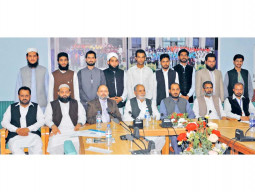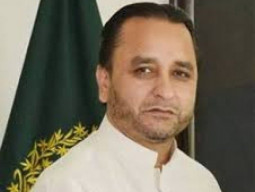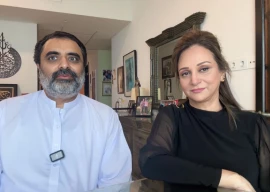Pakistan’s tax collection figures continue to give a headache to planners but the question remains as to who is responsible for the poor numbers. Despite raising taxes in many areas, the government falls short of targets with officials blaming each other for the poor showing.
More important, the country continues to look for short-cuts in its tax strategies, eager to tax the salaried class while businessmen and landowners generally get away with paying a pittance.
This newspaper reported that our indefatigable Finance Minister Ishaq Dar “showed annoyance” earlier this week over poor performance after his team missed the annual tax collection target by about Rs250 billion. Yes, that is a whopping sum indeed! Dar called the tax-persons in his office to review the performance for fiscal year 2016-17 that ended on June 30.
The Federal Board of Revenue (FBR) provisionally collected Rs3.352 trillion against the parliament-approved tax collection target of Rs3.621 trillion. The figure is still expected to improve by about Rs30 billion once final figures are available. But officials say that the FBR would miss its annual target by Rs250 billion. This is not a small amount. It can very well revolutionise the economy.
Where are we going wrong? To begin with - the FBR continues to be run under the direct control of the finance ministry instead of being an independent entity. As a result, anyone in government or whom the government wants to favour gets concessions when it comes to tax rates and collections.
In May, Dar had revised the FBR’s tax collection target downward by Rs100 billion to Rs3.521 trillion. But even this revised tax collection target was missed by a wide margin.
We cannot ignore the fact that the tussle between the finance ministry and the FBR affects tax collection figures. And then, some areas remained untaxed or undertaxed. For example, FBR could not collect due taxes from the cigarette manufacturing companies and took a hit of about Rs40 billion on its revenues.
In the meeting between Dar and his tax collecting officials, the finance minister grilled the FBR for their poor performance, as he was expecting tax collection of at least Rs3.421 trillion. Dar was informed that “liberal tax concessions” given by the federal government after the announcement of the budget in June last year severely dented tax collection.
The government changed the tax structure for fertiliser, textile and a couple of other sectors after setting the Rs3.621 trillion tax collection target. The finance minister had high expectations from the FBR despite tax concessions worth almost Rs200 billion which officials said were unreasonable.
The politicisation of tax collection is just one problem. The other of course is corruption. Businessmen have time and again complained of their refunds being stuck at the FBR and unreasonable demands for settlement of cases. The FBR has serious capacity and reputation issues. In most instances, tax officials are overburdened and underpaid – an excellent recipe for corruption and underhand dealings.
There is so much interference in the work of the tax collecting agency that it has affected its ability to widen the tax base. With over a million taxpayers in a country of 140 million, one can only wonder what the FBR has done.
The finance minister and his team need to work honestly to raise tax revenues. Not only does this mean that concessions should be given purely on merit and not on political or personal likes, but that the whole system is made transparent and systematic. The SRO Raj has to end. And now rather than later!
At the same time, tax cannot and should not be used to bully industry. Industry must pay to the government and not to government officials alone. In many instances, we have seen businessmen paying officials to stay out of the tax net.
More importantly, income has to be taxed in a progressive manner. Today most salaried persons pay more tax than our president or prime minister. Millionaires and their ilk get away with paying peanuts because they claim they are from the agriculture community. Such drivel will get us nowhere.
At the end of the day – we also need to see tax money spent wisely and effectively. So far in many instances we have seen the government spending money on itself – or on elected representatives. The government keeps growing bigger and fatter. This has to stop.
Published in The Express Tribune, July 3rd, 2017.
Like Opinion & Editorial on Facebook, follow @ETOpEd on Twitter to receive all updates on all our daily pieces.















































COMMENTS (1)
Comments are moderated and generally will be posted if they are on-topic and not abusive.
For more information, please see our Comments FAQ